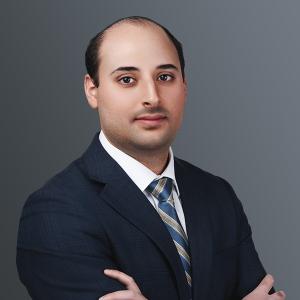ALERT: New trust reporting requirements are in effect for the 2023 tax year. Changes include new filing requirements for bare trusts. The filing deadline is April 2, 2023 and failure to file may attract significant penalties. Learn more in our post: New Trust Reporting Requirements – Bare Trusts Are Caught
RLR’s Wills & Estates group provides comprehensive estate planning for our clients. Our focus is on the smooth transition of wealth to future generations and charitable organizations with minimal tax or other negative financial consequences. Our services range from the preparation of wills, powers of attorney and representation agreements to advising trustees, implementing family trusts, and conducting estate and trust litigation.
If your situation involves being disinherited, you have concerns about the capacity of a parent or spouse to who has changed a will or transferred property, or you want to know whether you can challenge a will that you think is unfair, visit our Estate Litigation page.
If you are an Indigenous person, there are other considerations that need to be taken into account when you are dealing with wills and estates. We have experience advising and representing Indigenous people with respect to inter-generational wealth transfers and estate planning matters.
See our Aboriginal Law page for more information.
FAQS
Can you check out a Will that I bought from Staples that I’d like to sign, but I don’t want to spend a lot of money on lawyer fees. Can you help me?
We sometimes get asked to review generic Wills kits that are purchased off the shelf or downloaded from the internet. Depending on the nature of your assets and your family arrangements, these types of Wills may not achieve the result you want. To make sure that your last wishes are properly explained and carried out it is wise to speak to a wills and estates lawyer.
The major concerns with generic Wills include:
- The Will document may not do what the client wants it to do and may not be considered a formal Will under BC law.
- When drafting a Will it is important that we speak to you in person to ensure that the Will names the persons that you want to ultimately benefit from your estate and that the Will, as drafted, properly deals with your assets after your death.
- There are complexities under BC law that most people are unaware of and a lawyer can inform you about them. For example. BC law enables a spouse or a child of the deceased to bring a wills variation claim if either the spouse or child feels they have been unfairly or unequally dealt with under the Will.
What does an Executor have to do?
Persons named in a Will as an executor often do not know what they need to do when a Will-maker dies. As a starting point, it’s important for the executor to identify, secure, and protect the personal and real property of the deceased Will-maker and to do so right away.
A common issue for executors is what they should or should not allow the immediate family members to do with the Will-maker’s property after his or her death. Executors have a duty to make an inventory of personal property items or articles of the deceased Will-maker as well as other assets of value before any items or articles are given to those family members. The inventory can help an executor avoid problems down the road if a beneficiary complains about a family member who took a personal property item without the knowledge of the executor or without a claim of right to that item.
What does the “Attorney” in an Enduring Power of Attorney do?
Persons who are named as attorneys under an Enduring Power of Attorney must act in the best interests of the person for whom they are acting as attorneys (the “Donor”). This means that as the attorney in fact:
- you must put the interests of the Donor above your own,
- act in an honest and good faith manner towards the Donor and the Donor’s property, and
- be able to account for any funds that you use on behalf of the Donor.
What is a Personal Representative?
As a Personal Representative of another person (the “Donor”), you must be prepared to act as the substitute decision-maker for the person who appoints you (the “Donor”). So, it is important for you to know:
- what medical and personal care the Donor wants if the Donor becomes incapable
- what type of medical treatments or personal care circumstances the Donor would accept or reject, including what the Donor’s the end-of-life views are.
How much does it cost to make a simple will?
In order to properly draft a will, several issues and scenarios must be considered so the cost varies.
I require a trust for my adult child with disabilities. What is involved in having this prepared?
A trust for a disabled adult child must be carefully drafted to avoid losing government benefits and provide for the challenges the child will face. Notaries are not permitted to draft such trusts.
What grounds do I have to challenge the validity of a will?
Assuming a will has been properly signed and witnessed, a will-maker must have the necessary mental capacity and not have been improperly influenced. In some situations, undue influence is presumed and must be disproved by the person who benefits.
Should I grant Power of Attorney to my children?
Granting a Power of Attorney to anyone can give that person considerable power over your finances and property. While a Power of Attorney can be a useful incapacity planning tool, allowing loved ones to manage your personal financial affairs if you are unable to do so, there is also unfortunately the potential for abuse of this power. It is therefore important that whomever you consider naming name as your attorney(s) (whether it be family, friends, or professional advisors), that you have the utmost trust in them to act with the utmost care in their fiduciary duties as your attorney. It is also important that you carefully consider the limits to such power, if any, to include in the instrument.
Client Tips
When it comes to wills and estates planning:
- Do your legal personal planning now and keep it up to date
- Keep it simple (or as simple as possible)
- Involve your family and keep them informed
Having advice and assistance from an experienced Wills and Estates lawyer can make the process of putting your affairs in order less daunting and, more importantly, having that support ensures that your wishes are carried out as you intended. This is particularly important if you have vulnerable beneficiaries and to avoid leaving behind the potential for creating family conflicts.
New Tax Rules for 2023: Bare Trusts Face Unexpected Reporting Requirements and Penalties – UPDATE
UPDATE: CRA exempts bare trusts from trust reporting requirements for 2023 tax year.
Read the CRA Announcement: March 28, 2024: Bare trusts are exempt from trust reporting requirements for 2023
New Trust Reporting Requirements – Bare Trusts are Caught
Almost all trusts must now file a T3 Trust Income Tax Return, regardless of activity or income. The filing deadline is April 2, 2024, and a failure to file may result in penalties and unfavourable tax implications. Notably, “bare trusts” are caught by the new rules. Bare Trusts In fairly simple terms, a bare trust…
James Rhodes Joins the RLR Partnership
We are delighted to announce that effective January 1, 2024, James Rhodes joined Ramsay Lampman Rhodes as a partner. With a focus on real estate and business law, James has consistently demonstrated outstanding dedication and expertise that has benefited our clients. Join us in congratulating James. We are confident that his contributions to the firm…










